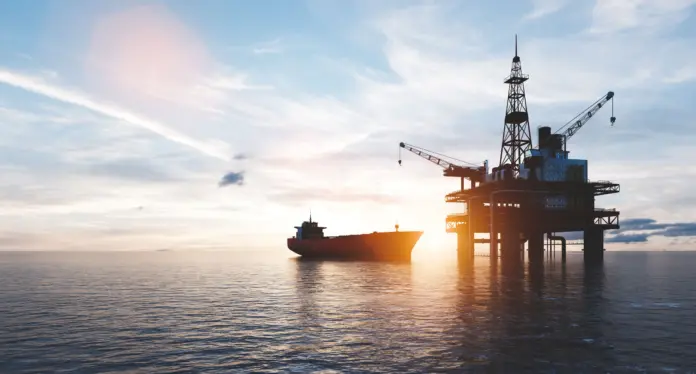In July 2025, news emerged that could redefine Poland’s position on the European energy map. Newly discovered oil reserves in Poland, located in the Baltic Sea near Świnoujście, represent not only a potential game-changer for national energy security but also a significant opportunity for foreign investors seeking strategic projects in Central and Eastern Europe.
Wolin East – the largest oil reserve in Poland’s history
Central European Petroleum (CEP), a Canadian company backed by Norwegian capital, announced the discovery of the largest conventional oil reserve in Poland – Wolin East. The reserves are estimated at 22 million tonnes of oil and 5 billion cubic meters of natural gas. The entire Wolin concession, covering 593 km² in Poland’s Baltic Sea zone, may contain even more: up to 33 million tonnes of oil and condensate and 27 billion m³ of gas.
This is one of the most important discoveries of its kind in Europe over the past decade.
Strategic importance and a path to energy independence
Poland currently imports about 96–97% of its oil and 82% of its gas. In this context, domestic reserves offer not only cost savings but also a critical step toward independence from external suppliers and the volatility of global markets. If properly confirmed and developed, the newly discovered oil reserves in Poland could significantly reduce this dependency—not by revolutionizing the market, but by stabilizing it and improving predictability.
As CEP CEO Rolf G. Skaar noted, “this is a historic moment for Poland’s energy sector.” The company has declared its commitment to close cooperation with both public and private Polish partners to advance the project.
New opportunities for foreign investors
Developing the Wolin East site is a major undertaking that will require substantial financial and logistical investment. It includes the construction and operation of offshore drilling platforms, expansion of transmission infrastructure, port logistics, and processing facilities. CEP is already seeking partnerships, creating opportunities for companies in the engineering, energy, chemical, and consulting sectors.
These oil reserves in Poland are also drawing attention from major industry players such as PKN Orlen. The West Pomeranian region, especially Świnoujście, could emerge as a key hub for a new phase of industrial and economic development.
Green transition and fossil fuel investment
Nevertheless, the broader context of international climate policy cannot be ignored. Like most EU member states, Poland has pledged to achieve climate neutrality by 2050. This means that investments in fossil fuels such as oil and gas must meet the highest environmental and social standards.
Experts point out that the potential of Wolin East does not negate the need for a green transition—it may serve as a stabilizing factor during the transition period. For environmentally responsible investors, the project offers a chance to apply cutting-edge extraction technologies and emissions reduction methods, all within the framework of EU and global sustainability goals.
What’s next? Opportunities and risks
While the excitement is well-founded, full-scale development still requires official geological documentation and further assessments. Moreover, success will depend on fulfilling a wide range of economic, technical, and environmental conditions. Foreign investors should begin analyzing the situation now, seeking local partners and tracking the project’s progress.
From a market perspective, the presence of a large, efficient, and accessible reserve could help stabilize fuel prices and reduce pressure from global supply chain disruptions.
Oil reserves in Poland – especially the Wolin East discovery – are signaling a new direction for energy investments in Central Europe. For international companies and investment funds, this represents a unique opportunity to be part of a strategic, high-potential project while maintaining a strong focus on climate responsibility and environmental sustainability. Poland now has a chance to become not just an energy consumer, but also a producer—and those who invest early may help shape this historic transformation.





